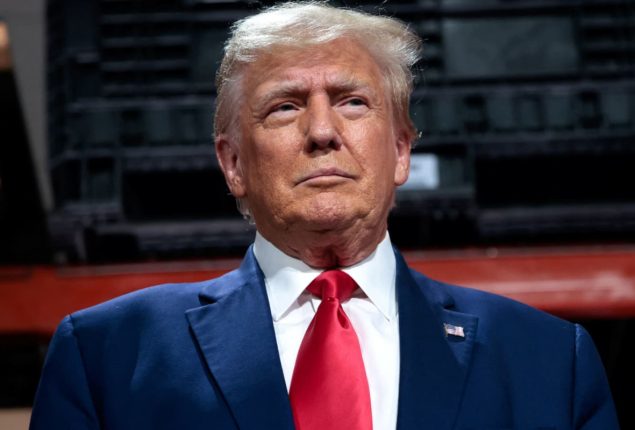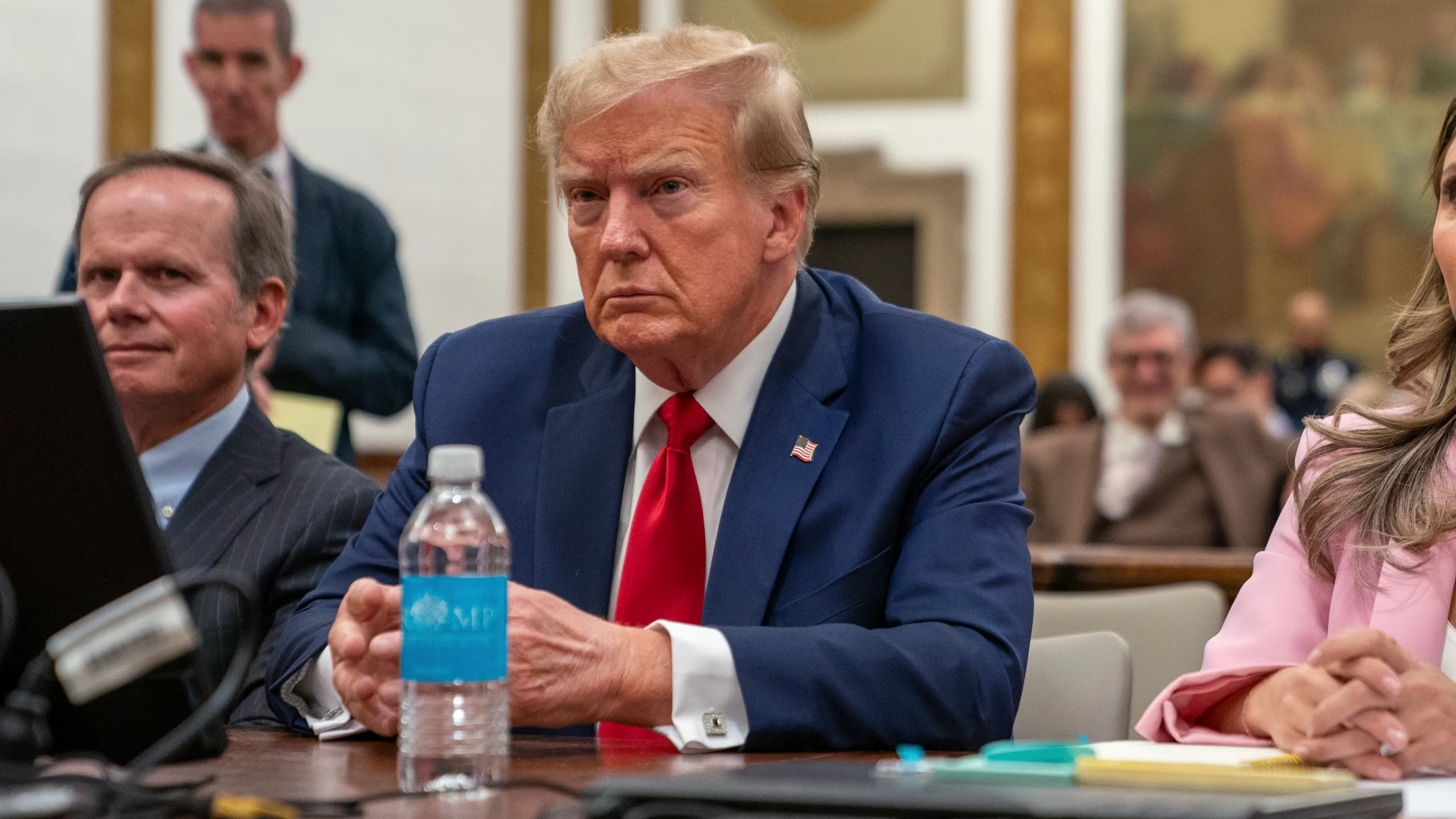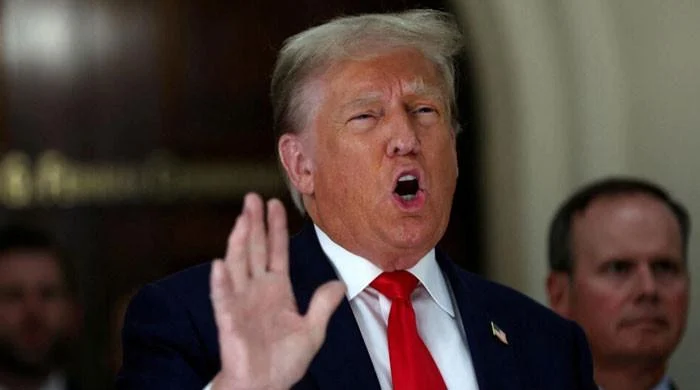Trump faces a $370m fine
A New York judge’s decision in Donald Trump’s civil fraud trial is anticipated on Friday, and it might have a significant impact on the company’s future.
The former president has previously been found guilty of falsely inflating the worth of assets in statements to lenders, as have his adult sons and the corporation bearing his name.
The judge has been requested by the prosecution to punish Mr. Trump $370 million (£291 million) and impose limitations on his capacity to do business in the state.
Even for a billionaire, that is a substantial sum of money. Legal experts warned that such a big fine might deal a devastating blow to Mr. Trump’s finances, especially in light of a possible ruling that may have a significant impact on his real estate company.
According to Diana Florence, a former federal prosecutor, “he’s not going to suddenly become working class.” “But the cost will simply be substantial. His wealth will drop dramatically.”
How come Trump could face a $370 million fine?
Letitia James, the attorney general of New York, informed the court that the Trumps ought to pay $370 million in disgorgement, which is a financial penalty that entails returning money obtained through dishonest means.
She determined the amount using three sources of information: money that Mr. Trump purportedly received in interest rate savings on loans by misrepresenting his assets; “bonuses” given to Trump Organisation staff members involved in the scam; and profit realised from two real estate transactions that Ms. James claims were obtained through deception.
Judge Arthur Engoron will decide on the financial penalties at the time of his decision.

In addition, Mr. Trump would be required to pay annual interest on the fine, which would go back several years to the time the alleged offences occurred, regardless of the amount. Given the 9% interest rate in New York, Mr. Trump might also be required to pay a quantity of money in addition to the penalty.
Mr. Trump argues that there was no wrongdoing because the banks had profited from his investments and disputes any allegations of fraud. It is anticipated that he would file an appeal, delaying the ruling until a higher court has had a chance to consider the matter.
However, he still needs to deposit the entire amount to be kept by the court within 30 days if he wishes to avoid paying the fine or having his personal assets seized while the appeal procedure is ongoing.
A harsh quantity, but not one that will destroy
According to one estimate from Forbes Magazine, Mr. Trump is worth $2.6 billion in total. In 2021, the Attorney General’s Office of New York projected his net worth to be $2 billion annually.
These calculations indicate that Mr. Trump would lose between 15 and 18% of his fortune in the event of a $370 million fine.
He already owes author E Jean Carroll $83.3 million in damages from a different defamation lawsuit that was settled in January, on top of the impending penalty. While he fights four criminal cases at the federal and state levels, his legal bills are also rising.
The total amount of these debts might exceed Mr. Trump’s available funds. Legal experts tell us he has a number of options.
Trump could get bonded, but it will come at a price.
Mr. Trump may attempt to obtain a bond, which is a third-party assurance that he can pay the entire amount, in order to avoid having to pay everything at once. That would come with additional interest and fees and cost him millions more. It’s also likely that he would have to provide collateral.
According to Steven Cohen of the New York Law School, one must normally post 10% of the entire amount outstanding in order to obtain a bond from a bonding firm.
In order for a bond business to issue the bond, Mr. Trump may have to pay them $37 million (£29 million) if he owed $370 million in disgorgement. Furthermore, he won’t get his money back.
Trump might liquidate assets to get the money.
Mr. Trump claimed to have $400 million in cash on hand during a deposition in this matter; however, it was unable to independently verify that amount. But that wouldn’t be enough to pay a fresh $370 million fine on top of his previous legal obligations and costs.
Former federal prosecutor Sarah Kristoff said, “He’s got to think about what to do with his assets, how to perhaps liquidate businesses to come up with that money.”
The majority of Mr. Trump’s wealth comes from his real estate holdings. According to Forbes, his real estate empire in New York is valued at $490 million (£384 million), which includes the $56 million (£44 million) valuation of his flagship condominium building, Trump Tower.
Numerous more properties across the nation, including hotels, golf courses, condo buildings, and even a vineyard, are included in his portfolio.
His estimated net worth is close to $4 billion. Trump Media & Technology Group runs the Truth Social messaging platform and is looking to go public. However, the firm’s market value has drastically fluctuated recently, and he would not be permitted to immediately sell shares in order to raise money under the terms of the agreement.
“It will take money to cover that kind of expense,” William Thomas, a professor at the University of Michigan Ross School of Business, stated. “Something has to be sold or realised.”

Trump might request the funds from his devoted followers.
In order to pay his tens of millions of dollars in legal bills, Mr. Trump might also rely on his enormous fundraising machine. The New York Times claims that 10% of every dollar donated by his fans is used to cover the cost of his legal defence in both civil and criminal proceedings.
Even though these kinds of organisations are usually used for political ends, he has raised money to pay for these trials through two political action committees: Make America Great Again, which sponsors his presidential candidature, and Save America, which has served as his main source of funding for legal expenditures. These are not affiliated with his official campaign account for president.
According to Forbes, his Save America political action organisation spent close to $40 million on legal fees and other associated costs between the time of his first indictment in March 2023 and the end of the year.
According to Shanna Ports, senior counsel at the Campaign Legal Centre, Mr. Trump may be able to use Save America to satisfy a court order under federal campaign finance regulations. She further stated that he would not be permitted to use official campaign funds for this payment.
However, lawyers warned that fundraising might not be feasible in Mr. Trump’s case anyhow.
A significant fine would “create a real cash-flow crunch for him to come up with nine figures in cash in very short order,” according to Mitchell Epner, a former federal prosecutor. He went on to say that raising that amount of money from his followers in such a short length of time would be extraordinary.
In January of this year, his Save America PAC had $5 million in cash on hand, according to documents filed with the Federal Election Commission.
Judge Engoron’s final decision will provide Mr. Trump with a clearer understanding of what this implies for his business and personal wealth. However the former president will probably have severe financial difficulties if he is forced to pay a significant fine, regardless of the method he selects.
According to Mr. Thomas, the business professor, “Trump really is a wealthy person, despite all of his misrepresentations and lies about his wealth.” “But most people don’t have $400m lying around.”
